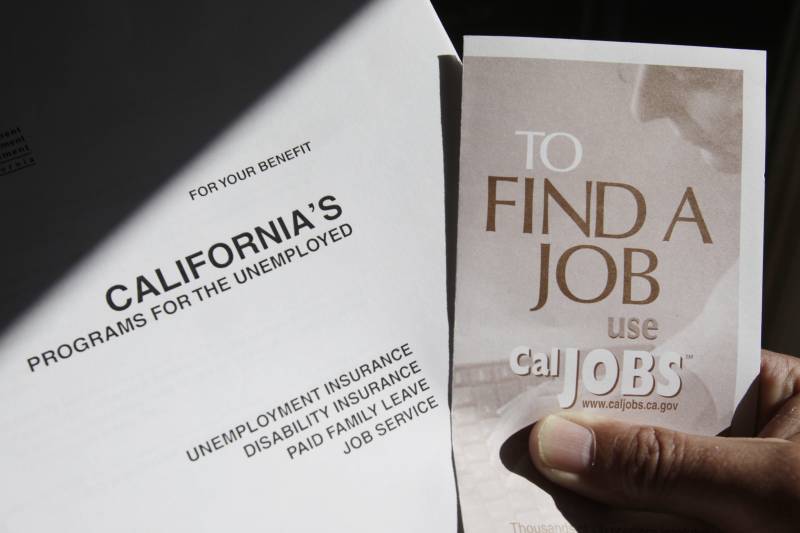The fund was solvent as recently as 2018 and 2019, but still below the recommended standard of having enough funds to distribute benefits for a year, according to Department of Labor data analyzed by the Century Foundation, a progressive think tank that advocates for equity in domestic and foreign policy. In 2017, and each year before that, going back to 2009, the fund had been insolvent. The last time the state’s unemployment insurance fund met the standard was in 1990.
The current debt has triggered a $21 increase per employee that employers must pay in payroll taxes starting this year. Employers’ rates will keep rising an additional $21 per employee each year until the state pays off the debt to the federal government, for a total of $945 per employee through 2031, according to projections by the Legislative Analyst’s Office based on the average state unemployment insurance tax rate.
“California’s business community is terribly concerned about our state’s unemployment insurance fund debt and the increased taxes it is bringing to businesses and will continue to bring for the next decade,” said Rob Moutrie, a policy advocate for the California Chamber of Commerce. “We believe all the factors affecting California’s unemployment insurance fund, including eligibility issues and EDD’s failures, must be considered when looking at the unprecedented debt.”
But others say the state’s system to fund unemployment has for years been structured to favor businesses in the first place.
“Big businesses haven’t been paying the true cost of unemployment for decades,” said Alissa Anderson, a senior policy fellow at the California Budget & Policy Center, who said she plans to speak with Portantino’s office about the issue. Anderson added that shifting unemployment insurance debt to the state, as businesses have called for, is “a backdoor tax break for businesses.”
A variable percentage tax funds the state’s unemployment fund, currently an average of 3.46%, on employers based on the first $7,000 each employee earns, the minimum taxable wage base required by federal law — a base California has not raised since 1983. That same wage base also applies to employers of both high-wage and low-wage earners, even though high-wage earners are eligible for higher unemployment benefits when they lose their jobs. Other states have raised their taxable wage bases as high as 100% of average weekly wages; in states like Washington, the taxable wage base this year is $67,600.
Economists say the fact that California’s taxable wage base has been the same for so long is one of the main reasons its unemployment fund is consistently underfunded or insolvent. Another reason is that the state has added benefits and eligibility over the years without adjusting how the system is funded.
“California never has sufficient funding,” said Stephen Wandner, senior fellow at the National Academy of Social Insurance and author of the book “Transforming Unemployment Insurance for the Twenty-First Century: A Comprehensive Guide to Reform.” Wandner called it “unreasonable… to have fairly generous benefits and extremely weak financing. It’s not sustainable.”
“The last time I checked, 1983 was about 40 years ago,” Wandner added. “What’s happened since then? Wages and prices have gone up every year.” In his book, Wandner recommends that states such as California should index their taxable wage base by setting it at 50% or more of the Social Security taxable wage base, or by indexing it to wage growth.
But Alamo, of the state Legislative Analyst’s Office, said that while the state’s wage base is lower than others, the percentage employers pay on that wage base is actually greater than the percentage employers in many other states pay on higher wage bases. “The amount contributed on behalf of workers is pretty middle of the pack,” he said.
Businesses want a working group
The state should take action to address the problems with the fund, said Jenna Gerry, senior staff attorney for the National Employment Law Project, who covers unemployment insurance issues in California.
“People need to understand the historic nature of this, and that something needs to be done now,” Gerry said, adding that fixing the system is also an equity issue in a high-cost state. The state’s unemployment benefit has been at a maximum of $450 weekly since 2005. “Who can live on that in California?” Gerry asked. Gerry added that the state needs to fix the unemployment fund’s solvency issues before it can raise the benefit limit.
Bill Sokol, who teaches labor law at San Francisco State University, said the system to fund unemployment insurance hasn’t changed all these years because the business lobby is strong. Sokol also said labor is fighting for more pressing issues that affect employed workers, not unemployed ones.
“What companies pay for UI is never going to be a top priority for unions, but it’s a top priority for business,” Sokol said. “This leaves it to the politicians to decide it’s for the greater good” to fix the unemployment insurance system, he said.
Lorena Gonzalez Fletcher, head of the California Labor Federation, agreed. She said that the governor used the unemployment insurance debt “as an excuse” not to sign Portantino’s bill — which was co-sponsored by the federation — but that she hasn’t “heard anything else” about how Newsom plans to address the debt.
There are different ways to “sculpt” a solution, Gonzales Fletcher said, including lowering the percentage all employers pay into the fund but bumping up what employers of higher-wage workers are required to pay.
That gets into the fact that employers of different sizes have differing concerns.
Small Business Majority, a national nonprofit organization that advocates primarily for under-resourced entrepreneurs and small businesses, wants to address equity issues, including the disproportionate effect the funding system has on smaller businesses.
Bianca Blomquist, the organization’s California policy director, called the system “regressive” and said it will be important to gather data about its impact on small businesses. Blomquist added that a well-funded unemployment insurance fund is vital because small businesses understand that “when a community is suffering (from unemployment), small businesses suffer.”
Meanwhile, CalChamber and other business groups in 2021 asked the governor to form a working group to address the fund’s debt and solvency issues.
Moutrie of CalChamber said there has been no meeting about the matter so far, but that he expects meetings to happen next year.


